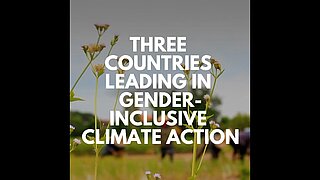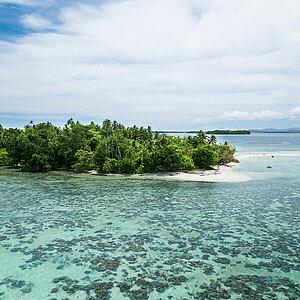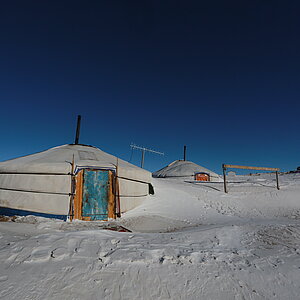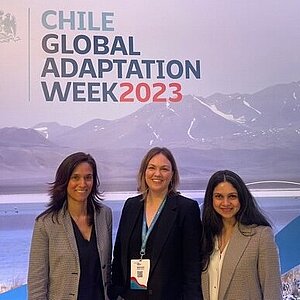Support Programme on Scaling up Climate Ambition on Land Use and Agriculture through NDCs and National Adaptation Plans (SCALA)
With climate change threatening the agriculture sectors, livelihoods and food security, there is an urgent need for scaled action to cope with climate-related impacts. In response to that, SCALA supports 12 countries in Africa, Asia and Latin America to both build adaptive capacity and to implement low emission priorities in agriculture and land use. The programme uses a multi-stakeholder approach, harnessing strong engagement from the private sector and key national institutions. National activities focus on strengthening policies, appraising and adopting innovative approaches, as well as removing key barriers related to information gaps, governance, finance, gender mainstreaming and integrated monitoring and reporting. The ultimate goal is for countries to turn agricultural related priorities laid out in their National Adaptation Plans (NAPs) and Nationally Determined Contributions (NDCs) into action.
- Countries
- Argentina, Cambodia, Colombia, Costa Rica, Ivory Coast, Egypt, Ethiopia, Mongolia, Nepal, Senegal, Thailand, Uganda
- IKI funding
- 26,000,000.00 €
- Duration
- 11/2019 till 12/2028
- Status
- open
- Implementing organisation
- United Nations Development Programme (UNDP)
- Political Partner
-
- Ministries of Agriculture and Rural Equipement - Senegal
- Ministries of Food, Agriculture and Light Industry - Mongolia
- Ministry for Environment and Sustainable Development (MEDD) - Senegal
- Ministry of Agriculture, Animal Industry and Fisheries - Uganda
- Ministry of Agriculture, Forestry and Fisheries - Cambodia
- Ministry of Agriculture, Livestock and Fisheries (MAGyP) - Argentina
- Ministry of Agriculture & Land Reclamation - Egypt
- Ministry of Agriculture and Cooperatives - Thailand
- Ministry of Agriculture and Livestock - Costa Rica
- Ministry of Agriculture and Livestock Development - Nepal
- Ministry of Agriculture and Natural Resources - Ethiopia
- Ministry of Agriculture and Rural Development - Colombia
- Ministry of Agriculture and Rural Development - Cote d 'Ivoire
- Ministry of Environment, Forest and Climate Change (MEFCC) – Ethiopia*
- Ministry of Environment (MoE) - Cambodia
- Ministry of Environment and Energy (MINAE) - Costa Rica
- Ministry of Environment and Sustainable Development (MinAmbiente) - Colombia
- Ministry of Environment and Sustainable Development - Argentina*
- Ministry of Environment and Sustainable Development - Côte d’Ivoire
- Ministry of Environment and Tourism – Mongolia; Ministry of Environment MoE - Egypt; Ministry of Forests and Environment - Nepal; Ministry of Water and Environment - Uganda; Office of Natural Resources and Environmental Policy and Planning - ONEP - Thailand
- Implementing Partner
-
- Food and Agriculture Organization of the United Nations (FAO)
State of implementation/results
- Outcome 1: Strengthening the evidence base for transformative climate action:
- SCALA is supporting countries to identify, prioritize and unpack transformative climate options in national plans and strengthening capacities to produce and apply information for evidence-based decision-making. All countries are undertaking systems-level assessments (SLAs) to fill information gaps for implementing agriculture sector climate priorities and leveraging finance. Examples include:
- Colombia: 32 risk and vulnerability assessments were completed to monitor climate risks in agricultural sub-sectors and 15 traditional adaptation practices of local communities and indigenous populations are being catalogued.
- Ethiopia: Locally-relevant interventions to transform agricultural practices and strengthen adaptive potential in three micro watersheds were identified, including soil and water conservation practices, technology to enhance livestock production and productivity and conservation agriculture practices for resilient cropping systems.
- Mongolia: an assessment on the implications of a new livestock tax law was conducted to identify evidence-based climate solutions to address livestock management, pastureland degradation and increasing carbon emissions from animal husbandry in support of national development and climate goals.
- Uganda: Transformative climate options related to pastureland and feeding management, improving livestock health and breeding schemes and resilience building of milk and cassava value chains were validated by stakeholders and are being incorporated in district plans.
- SCALA is enhancing governance mechanisms by reinforcing multistakeholder participation and capacitating the institutions in charge of implementing NDCs and NAPs to mainstream agriculture and land use priorities in planning, budgeting, monitoring and reporting. Examples includes:
- Technical assistance to draft, validate the Climate Change Priority Action Plan (CCPAP) for Agriculture, Forestry and Fisheries Sector (2023-2030) (Cambodia); finalize, validate the NAP (Cote d’Ivoire); conduct a study on barriers and incentive mechanisms for Climate Smart Agriculture (CSA), a key priority for the NDC, NAP and Climate Resilient Green Economy (CRGE) (Ethiopia); support the integration of climate change in the Agriculture Development Strategy (ADS) (Nepal); formulate, validate the revised Climate Change Action Plan on Agriculture (CCAPA) and develop a progress tracking framework (Thailand).
- Trainings of local government planners to integrate transformative climate actions prioritized through SLAs into district development plans and budgets (Ethiopia and Uganda).
- Capacity development on M&E and MRV frameworks in line with UNFCCC reporting requirements included enhancing data compilation, information management systems and accessibility for GHG inventory (Cambodia, Mongolia); supporting BTR drafting and preparations for submission (Cambodia, Ethiopia); evaluating existing M&E/MRV frameworks, capacity needs and preparing action plans for improvement (Côte d’Ivoire, Nepal); developing and operationalizing tools for monitoring and MRV (Colombia, Uganda); developing national M&E framework for agrifood systems as part of NAP process (Egypt); training on NDC implementation tracking (Senegal).
- An analysis was undertaken to identify gaps that hinder women’s full participation in livestock production and a roadmap, which will inform the livestock NAMA, was developed to address these barriers (Costa Rica); a social analysis on the issues faced by migrant labourers has been conducted as part of the SLA (Thailand).
- In collaboration with UNDP’s Food and Agricultural Commodities System team, SCALA is adapting the Effective Collaborative Action (ECA) methodology to strengthen coordination for climate action between ministries (Costa Rica).
- SCALA is partnering with national universities to design a diploma in “Food Sustainability for Climate Action”, facilitate scholarships for farmers and develop practical training modules on agroecology, ecological restoration biodiversity monitoring and sustainable land management (Colombia).
- SCALA is supporting countries to enhance private sector engagement and investment in agriculture and land use and building new alliances for the implementation of priority climate actions. Examples include:
- Supporting the development and adoption of voluntary agreements between government and the private sector to implement climate action in coffee, cocoa and beef value chains (Colombia); piloting a certification scheme for deforestation-free beef production and market study on differentiated meat and dairy products (Costa Rica); private sector roundtable on barriers for private sector engagement in climate action in the livestock and dairy sectors (Egypt); project concept notes formulation on low carbon climate resilient dairy practices in (Egypt), and on watershed management in (Ethiopia); developing market-based instruments to reduce livestock emissions (Mongolia); business plan for apple value chain and stocktake report on agricultural index insurance (Nepal); study on incentive structures for improved manure management and biogas adoption in the livestock value chain (Thailand); market analysis and assessment of barriers and opportunities for private sector investment to inform project concept notes on cassava and livestock production (Uganda).
- Under the SCALA Private Sector Engagement Facility (PSE Facility), a mapping and analysis of the coconut value chain was completed (Equatorial Guinea); a market study assessing the commercial viability of bio-inputs for the production of organic vegetables and commodities was published (Sao Tome and Principe, www.adaptation-undp.org/…); a feasibility study on biogas was finalized (Solomon Islands) a private sector and ecosystem mapping of sorghum, maize and sesame was published (Somalia); and a country-wide biogas resource potential assessment was completed (The Gambia).
- March: co-organized a regional workshop on Making climate finance work for agrifood systems in Asia and the Pacific with FAO’s Food and Agriculture for Sustainable Transformation (FAST) Partnership. www.fao.org/…
- April: co-organized a side event on “How inclusive and cross-scale stakeholder engagement can drive transformational adaptation” at NAP Expo 2024, with the NAP Global Network and UNCDF, featuring speakers from Cote d’Ivoire and Nepal. On the sidelines of NAP Expo, SCALA also organized its 4th Advisory Group meeting. www.adaptation-undp.org/…
- June: participated in technical sessions at the SB60 Bonn Climate Change Conference. SCALA country examples, in particular Colombia, were presented during the first UNFCCC expert dialogue on mountains and climate change. unfccc.int/…
- June: organized a webinar on ‘Integrating climate change into planning and budgeting for agriculture and land use’, highlighting country experiences from Uganda and Nepal. www.adaptation-undp.org/…
- May and July: Participated in the UNFCCC workshop on the UAE-Belem Work Programme on indicators in Thimpu. Presented SCALA’s work on adaptation M&E, including specific examples from countries.
- August: supported the organization of thematic sessions on agriculture and food systems at the NDCs 3.0 regional forum for Latin America.
Latest Update:
03/2025
Further links
- Article: Implementing SHARP+ to foster transformative climate actions in Uganda' cattle corridor
- Video: How Costa Rica plans to go carbon neutral
- Video: 3 ways to transform the agriculture sector in Senegal
- Video: 3 ways Uganda will scale up climate action
- Video: How the private sector can contribute to Cambodia’s climate action
- Article: Egypt scales up climate adaptation actions of its agriculture, water and agrifood sectors
- Video: 3 ways Egypt is building a resilient agriculture sector
- Video: How Ethiopian farmers are adapting to climate change
- Video: 5 ways Thailand will transform its agriculture and land use sectors
- Video: 3 ways Mongolia is transforming its farming and livestock sectors
- Web Story: Mainstreaming Gender Equality into budgeting and planning processes for climate action
- Web Story: Colombia paves the way from adaptation planning to local implementation in five agricutltural sub- sectors
- Article: Uganda’s approach to reporting climate actions from all sectors
- Article: Thailand focuses on climate-smart agriculture to transform its climate actio
- Article: Mission critical: bridging the gap between business and national climate plans
- SCALA Private Sector Engagement Facility Brief
- FAO Press Release
- Video: SCALA in Cote d`Ivoire
- Video : SCALA in Nepal
- Publication: Private sector mapping, outreach, and engagement in climate-responsive agrifood systems SCALA private sector engagement guidance series, March 2023
- Web story: Celebrating women’s leadership in climate action
- Web story: Team Splicing from Mongolia wins the SCALA Hackathon for Asia and the Pacific
- Web story: Nepal pursues a locally led adaptation approach to implement climate plans
- Web story: Accelerating climate action and adaptation strategies at NAP Expo 2023
- Web story: An inside look at the scoping mission in Oromia and Harari Regional States of Ethiopia
- Web story: How can we accelerate NDC implementation? Three takeaways from Berlin
- Web story: SCALA supports Egypt with integrating agriculture into the National Adaptation Plan
- Web story: Sowing resilience: how Colombia’s Indigenous People adapt to climate change
- Training Modules: Addressing agriculture in National Adaptation Plans
- UNDP Press Release
- Article: Joining hands with businesses to scale up climate resilient agriculture
- Article: When you think farmer – think female!
- Twitter-Account
- Article: Strengthening transformative approaches in Senegal’s climate action plans
- Article: Uganda identifies barriers, solutions, and investment opportunities for gender-responsive agri-food value chains in the cattle corridor
- Article: Costa Rica prioritizes transformative climate practices in its agri-food chains
- Article: Cambodia strengthens climate action coordination with ministries, private sector and community-based organizations
- Article: Mongolia prioritizes adaptation and mitigation goals on livestock, animal husbandry and arable farming
- Article: COP26 confirms need for increased ambition on public and private finance in the agriculture and land use sectors
- Article: How to advocate for gender equality in the response to climate change
- Article: The climate-nutrition-agrifood system nexus in Uganda
- Article: Ethiopia enhances irrigation, watershed and pastureland management to translate climate plans into actionable climate solutions
- SCALA Technical Facility Webpages
Project relations
Legend:
The link has been copied to the clipboard


























